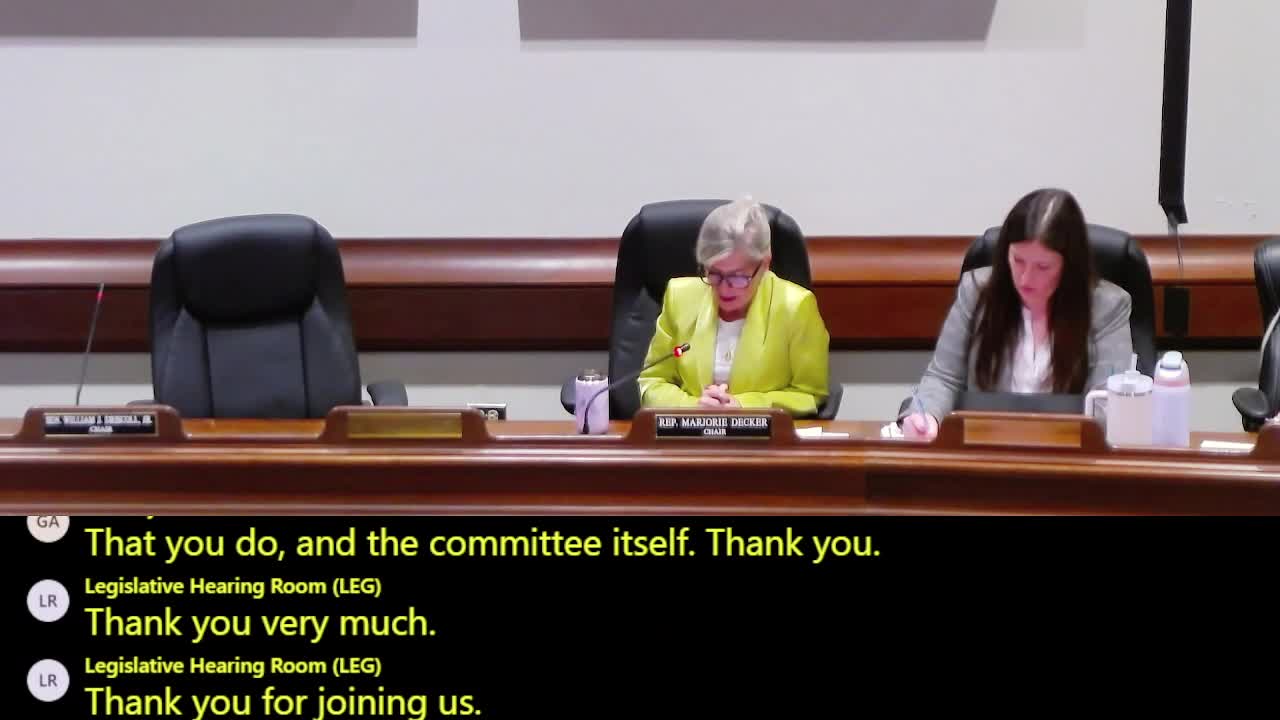Massachusetts Pushes Therapeutic Psilocybin Treatment Bill Amid Mental Health Crisis
September 29, 2025 | 2025 Legislature MA, Massachusetts
This article was created by AI summarizing key points discussed. AI makes mistakes, so for full details and context, please refer to the video of the full meeting. Please report any errors so we can fix them. Report an error »

On September 29, 2025, the Massachusetts Joint Committee on Public Health convened to discuss significant legislation regarding therapeutic psilocybin treatment centers. The meeting highlighted the urgent need for innovative mental health solutions in the state, particularly in light of rising rates of suicide, addiction, and other behavioral health crises.
Graham Moore, a patient advocate and caregiver, shared personal experiences that underscored the critical nature of mental health challenges faced by many in Massachusetts. He emphasized the potential of psilocybin as a safe and effective treatment for various behavioral health conditions, citing a growing body of research supporting its therapeutic benefits. Moore pointed out that Massachusetts spends over $2 billion annually on behavioral health care, yet continues to lose thousands of residents to preventable causes such as smoking, alcoholism, and overdoses. He argued that regulated access to psilocybin could provide a much-needed alternative for those struggling with mental health issues.
Ashley Mahoney, a licensed mental health counselor, also voiced strong support for the proposed legislation, H2532. She described her experiences with trauma-focused therapy and the transformative potential of psychedelic-assisted treatments. Mahoney highlighted the need for Massachusetts to lead in the responsible integration of psychedelic medicine, noting that many trauma presentations remain resistant to traditional therapies. She stressed the importance of ensuring equitable access to these treatments, warning against the pitfalls seen in other states where costs have made such therapies inaccessible to the majority.
The discussions during the meeting reflect a growing recognition of the limitations of current mental health treatments and the potential for psilocybin to fill critical gaps in care. As Massachusetts lawmakers consider this legislation, the implications for public health and mental health infrastructure could be profound. The committee's deliberations signal a shift towards more innovative approaches to mental health care, aiming to address the urgent needs of the community while ensuring that access remains equitable and ethical.
As the committee continues its work, the outcome of this legislation could pave the way for a new era in mental health treatment in Massachusetts, potentially setting a precedent for other states to follow. The focus now shifts to how these proposals will be shaped and implemented, ensuring that they meet the needs of those most affected by mental health challenges.
Graham Moore, a patient advocate and caregiver, shared personal experiences that underscored the critical nature of mental health challenges faced by many in Massachusetts. He emphasized the potential of psilocybin as a safe and effective treatment for various behavioral health conditions, citing a growing body of research supporting its therapeutic benefits. Moore pointed out that Massachusetts spends over $2 billion annually on behavioral health care, yet continues to lose thousands of residents to preventable causes such as smoking, alcoholism, and overdoses. He argued that regulated access to psilocybin could provide a much-needed alternative for those struggling with mental health issues.
Ashley Mahoney, a licensed mental health counselor, also voiced strong support for the proposed legislation, H2532. She described her experiences with trauma-focused therapy and the transformative potential of psychedelic-assisted treatments. Mahoney highlighted the need for Massachusetts to lead in the responsible integration of psychedelic medicine, noting that many trauma presentations remain resistant to traditional therapies. She stressed the importance of ensuring equitable access to these treatments, warning against the pitfalls seen in other states where costs have made such therapies inaccessible to the majority.
The discussions during the meeting reflect a growing recognition of the limitations of current mental health treatments and the potential for psilocybin to fill critical gaps in care. As Massachusetts lawmakers consider this legislation, the implications for public health and mental health infrastructure could be profound. The committee's deliberations signal a shift towards more innovative approaches to mental health care, aiming to address the urgent needs of the community while ensuring that access remains equitable and ethical.
As the committee continues its work, the outcome of this legislation could pave the way for a new era in mental health treatment in Massachusetts, potentially setting a precedent for other states to follow. The focus now shifts to how these proposals will be shaped and implemented, ensuring that they meet the needs of those most affected by mental health challenges.
View full meeting
This article is based on a recent meeting—watch the full video and explore the complete transcript for deeper insights into the discussion.
View full meeting
